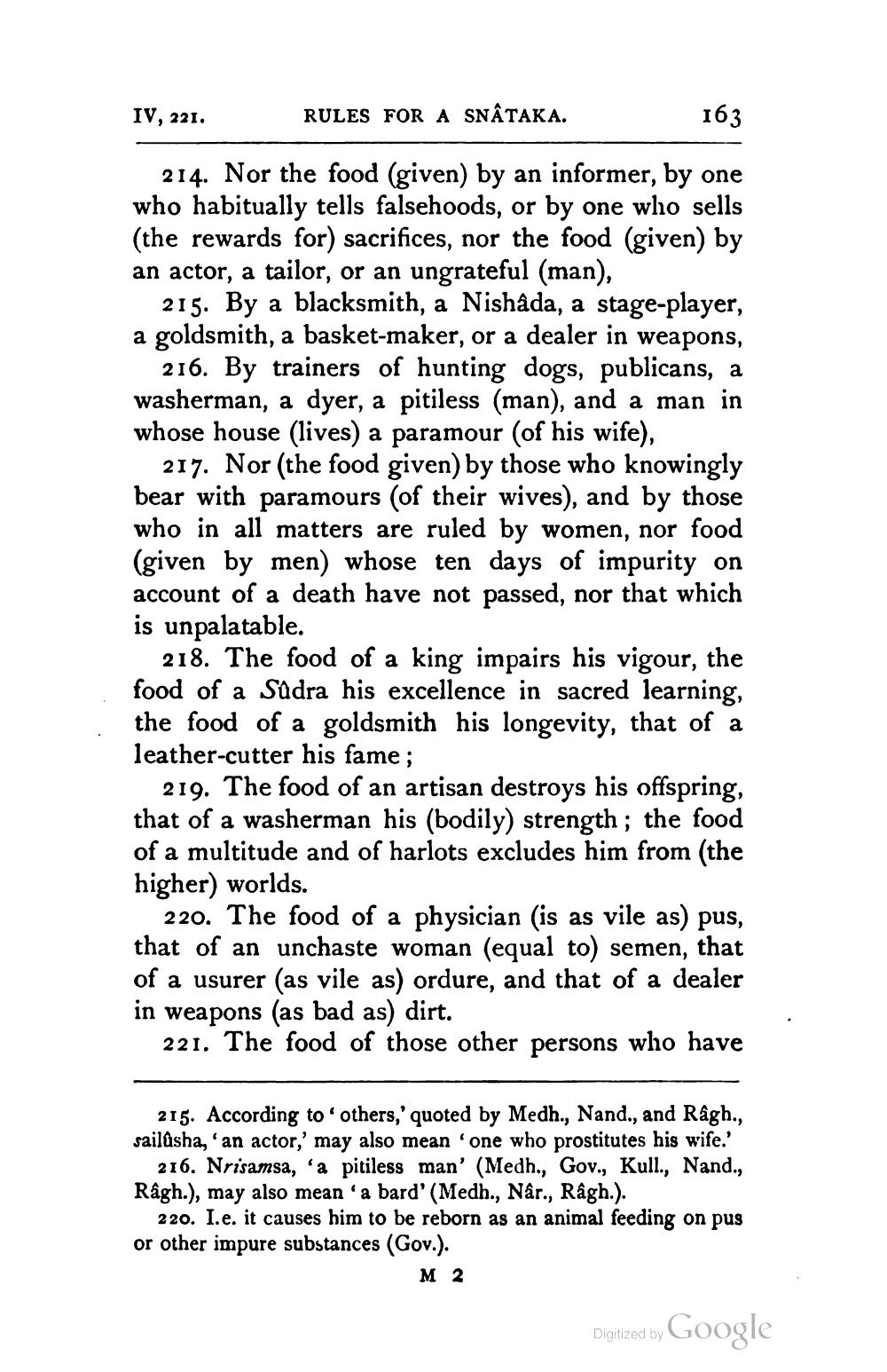________________
IV, 221.
RULES FOR A SNÂTAKA.
163
214. Nor the food (given) by an informer, by one who habitually tells falsehoods, or by one who sells (the rewards for) sacrifices, nor the food (given) by an actor, a tailor, or an ungrateful (man),
215. By a blacksmith, a Nishâda, a stage-player, a goldsmith, a basket-maker, or a dealer in weapons,
216. By trainers of hunting dogs, publicans, a washerman, a dyer, a pitiless (man), and a man in whose house (lives) a paramour (of his wife),
217. Nor (the food given) by those who knowingly bear with paramours (of their wives), and by those who in all matters are ruled by women, nor food (given by men) whose ten days of impurity on account of a death have not passed, nor that which is unpalatable.
218. The food of a king impairs his vigour, the food of a Sudra his excellence in sacred learning, the food of a goldsmith his longevity, that of a leather-cutter his fame;
219. The food of an artisan destroys his offspring, that of a washerman his (bodily) strength; the food of a multitude and of harlots excludes him from (the higher) worlds.
220. The food of a physician (is as vile as) pus, that of an unchaste woman (equal to) semen, that of a usurer (as vile as) ordure, and that of a dealer in weapons (as bad as) dirt.
221. The food of those other persons who have
215. According to others,' quoted by Medh., Nand., and Ragh., sailasha, an actor,' may also mean 'one who prostitutes his wife.'
216. Nrisamsa, 'a pitiless man' (Medh., Gov., Kull., Nand., Râgh.), may also mean'a bard' (Medh., Nár., Râgh.).
220. I.e. it causes him to be reborn as an animal feeding on pus or other impure substances (Gov.).
M 2
Digitized by Google




